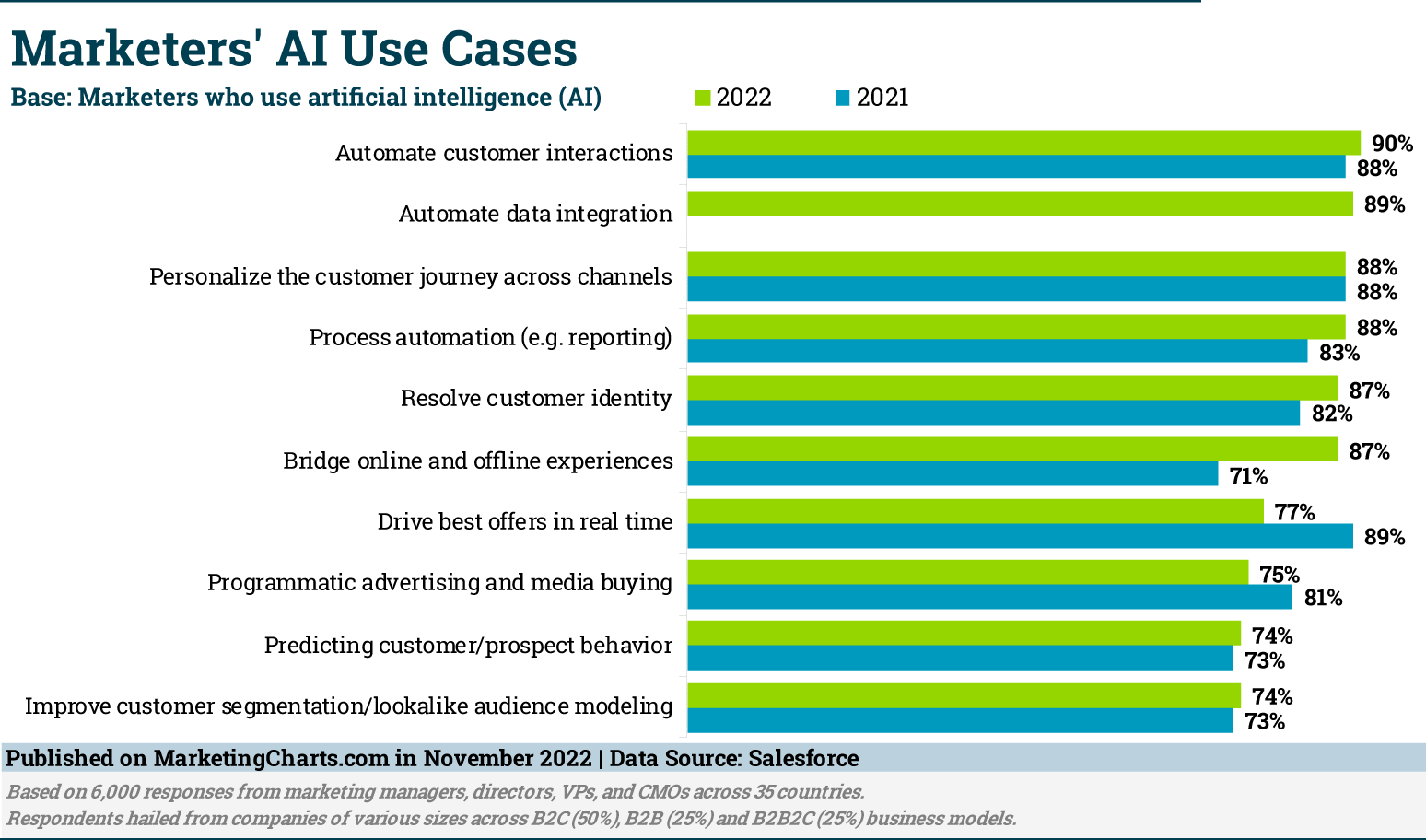According to the latest Salesforce State of Marketing Report, there’s sustained growth in the share of marketers around the world who have a fully defined artificial intelligence (AI) strategy, reaching 68% this year from 60% last year and 57% in 2020.

Among the marketing organizations that use AI, the most widespread use is to automate customer interactions, as reported by 90%. Some 89% use AI to automate data integration, while 88% use these applications to personalize the customer journey across channels, and an equal 88% for process automation, such as reporting. The analysts note that three of the top four AI use cases are related to automation, highlighting the importance of scaling up speed and effectiveness with existing resources.
The biggest year-over-year decline in AI usage is for driving the best offers in real-time (77% this year, down from 89% last year).
By contrast, the biggest jump this year has been in the percentage of AI users who are leveraging the technology to bridge online and offline experiences: 87% report doing so this year, up from 71% last year. This is interesting given the above findings on automation: past research has found that while automation can improve efficiencies, adding artificial intelligence (AI) can help to further improve the customer experience.
The study notes that marketers are leveraging AI to improve customer experiences, which is helpful based on marketers’ customer-centric focus. Eight in 10 respondents to Salesforce’s survey agree that customer experience is the key competitive differentiator. Despite some debate about who owns CX, marketers in this survey think that it’s their responsibility: 8 in 10 agree that their marketing organization leads customer experience initiatives across the business.
Marketers may be under pressure to make good use of AI: 88% either strongly agree (44%) or agree (44%) that marketers must continually innovate to remain competitive, and 71% also agree to some extent that meeting customer expectations is harder than it was a year ago.
Download Salesforce’s study to learn more.
About the Data: The results are based on 6,000 responses from marketing managers, directors, VPs, and CMOs across 35 countries. Respondents were from companies of various sizes across B2C (50%), B2B (25%), and B2B2C (25%) business models.
Need assistance with your marketing strategy? Schedule a call or email Lori Berson at lberson@BersonDeanStevens.com.
BersonDeanStevens has been a recognized brand strategy and marketing leader for over 25 years, including over a decade in marketing and sales automation. We work in partnership with you to differentiate your brand and achieve your business goals. Client list.
